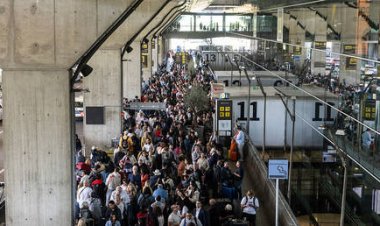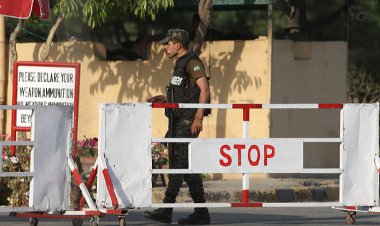Economic minister pursues German chancellorship
Robert Habeck’s announcement follows the recent collapse of the ruling ‘traffic-light’ coalition, which disintegrated due to disagreements regarding the budget.. source:TROIB RTS

As Germany faces rising inflation and an ongoing economic downturn, many Germans have reportedly directed their frustration towards the Greens and Habeck himself, according to local media. Current opinion polls indicate that the Greens hold an approval rating of around 10%.
In a YouTube video address on Friday, Habeck, who also serves as vice chancellor, addressed the various crises impacting the lives of everyday Germans. He cautioned that “peace and freedom are under pressure unseen for a long time, also here [in Germany].”
“That’s why I have made a decision, that’s why I run for office once again,” he declared, expressing his readiness to contribute his “experience, my strength and my responsibility. Also as a chancellor, if you want.”
While he acknowledged having made “mistakes,” the minister emphasized his willingness to earn his “claim to leadership.”
Habeck also criticized populists for allegedly fostering an “edgy [and] gloomy” atmosphere in the country, attributing some of this political tension to support from Moscow.
According to him, “[Russian President Vladimir] Putin’s war [against Ukraine] has brought inflation to Germany, and made life, your life, much more expensive.”
In response to the announcement, Christian Lindner, the leader of the Free Democratic Party and Habeck’s former colleague, expressed his surprise on X, stating, “Crazy. Now majority, but already two chancellor candidates in the government,” presumably referencing Chancellor Olaf Scholz, who is also vying to retain his position.
Friedrich Merz, the leader of the Christian Democratic Union and the party's chancellor nominee, pointed to the Greens' low standing in opinion polls, as reported by the Frankfurter Allgemeine Zeitung.
The coalition's collapse was triggered on Wednesday when Scholz dismissed Lindner, who had been serving as finance minister, due to his refusal to approve a spending plan that included increased aid for Ukraine.
The situation escalated when Lindner proposed early elections after the coalition parties could not reach an agreement regarding the multibillion-euro deficit in next year’s budget.
Now leading a minority government, Scholz has announced a confidence vote in the Bundestag scheduled for January 15. If he fails to gain enough support, snap elections could occur in March 2025.
Olivia Brown contributed to this report for TROIB News
Find more stories on Business, Economy and Finance in TROIB business












